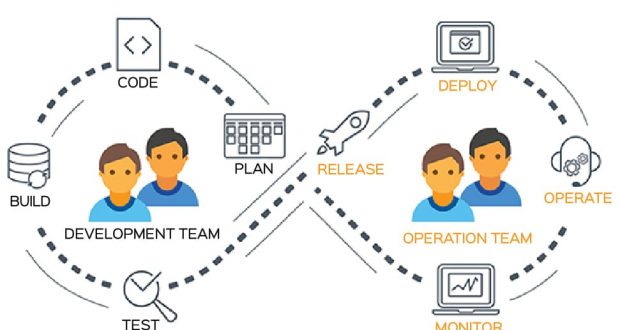When IT departments are looking to create more seamless and efficient IT cultures in their business, outsourcing DevOps companies Boston-based or elsewhere is a natural consideration as traditional operations are typically 41 percent more time-consuming than DevOps.
One study indicated that 83 percent of IT stakeholders are choosing to implement DevOps in order to streamline productivity for IT teams. Key principles guiding the reasons behind DevOps implementation as it stimulates more innovation in the workplace and speed. Still, many organizations continue to work with traditional IT methods. Learn more about the differences between the two methodologies here.
Time Differences
Time differences are the number one reason that DevOps is consistently selected over traditional IT operations. One area this shows the most is in job duties. DevOps infrastructure typically works less on the failure of systems than traditional operations agents do. In other words, traditional IT duties include putting out fires, where DevOps is working on building infrastructure that solves problems as opposed to creating more.
With DevOps, teams require less administrative support and functions from automation and self-support, and self-service tools.
Accelerated Tasks
In DevOps, teams are smaller and focused more on innovating than on feedback loops. DevOps teams will handle situations at an accelerated pace, whereas traditional ops teams will function from feedback loops in a dedicated scenario.
Both kinds of teams will have vision and foresight in their problem-solving capabilities. DevOps are slightly more ahead of the game, a trait that is more about the way they problem-solve and less about problem-solving traits. For DevOps, speed is a requirement, which is why it is so frequently quoted as its largest advantage. It just isn’t the case for traditional IT culture.
Different Recovery Times
With recovery times, speed is going to play in with DevOps over traditional operations as well. DevOps typically experience fewer apps failures in a month than a traditional operations team. Recovery time from these failures is also typically shorter with DevOps over traditional operations as well.
The key difference between the functionalities of both kinds of teams is that DevOps is more prepared for an eventual or possible application failure. The function of traditional operations in IT culture is to solve problems. They wait for them and then deal with them, with a level of preparedness that exists, but isn’t the same as DevOps. Both types of teams rely on consistent testing and monitoring, with both teams managing responses and response-levels in a much different way.
Consider DevOps Methods
When you are restructuring your IT culture, consider implementing DevOps solutions to see the differences for yourself. Research the DevOps companies Boston-based and elsewhere to find the right fit for your organization.
 Blog For Noob Random thought of a Noob Blogger
Blog For Noob Random thought of a Noob Blogger









